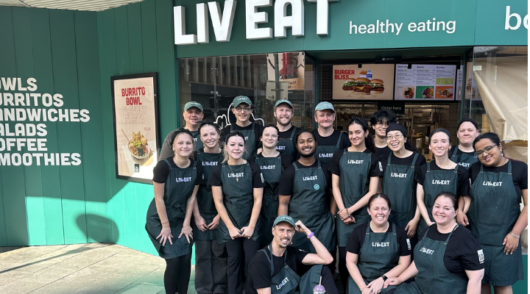In a landmark case, the Australian Uyghur Tangritagh Women’s Association (AUTWA) is taking legal action to compel Kmart to prove whether its suppliers are connected to Uyghur forced labour. While it’s uncommon to request documents before a claim of wrongdoing is made, Professor Shelley Marshall, deputy dean at the School of Law at RMIT University, told Inside Retail that this form of legal action is starting to trend in corporate accountability cases. “In the absence of robust mandat
mandatory disclosure laws or forced labour import bans, this court power is one of the few legal mechanisms available in Australia to force transparency on corporate supply chains,” Marshall stated.
“But it places the onus on civil society to investigate and litigate – at significant cost and risk,” she added.
In this case, the AUTWA is relying on Federal Court Rules and Australian Consumer Law, not Australia’s Modern Slavery Act 2018, to seek documents from Kmart to establish whether it has a reasonable basis to allege misleading and deceptive conduct.
Kmart said it takes all reports of modern slavery risk within its supply chains very seriously and that all suppliers are required to comply with its Ethical Sourcing Program, which helps to identify and mitigate modern slavery risks, including the risk of forced labour, in its operations and supply chains.
The Human Rights Law Centre, along with Maurice Blackburn, is representing the AUTWA.
“Alarm bells have been ringing for a long time in relation to the risk of Uyghur forced labour in the Chinese garment industry, and Australian retailers have been on notice,” Freya Dinshaw, associate director at the Human Rights Legal Centre, told Inside Retail.
Making a compelling case
According to Marshall, for the AUTWA to succeed, it would have to show:
that it reasonably believes they may have a right to obtain relief from Kmart;
that Kmart may have documents that would help determine whether such a claim can be brought;
and that the AUTWA has made reasonable inquiries but cannot otherwise access the information.
She said Kmart is likely to refuse to share its supplier information on the legal grounds of commercial confidentiality, proportionality and the principle of no fishing expeditions.
“Kmart claims to have a rigorous, ethical sourcing program. However, we know that at least two of its suppliers have credible links to the Xinjiang region, where forced labour is rife, and so our client is requesting that Kmart open its books on what it knows about those suppliers,” explained Dinshaw.
“If it’s done audits, let’s see those audits. If there have been site visits, it should be disclosing those,” she added.
Inside Retail contacted Kmart for clarification of the information and documentation in dispute and why it has chosen not to make it publicly available thus far.
In a longer statement, a Kmart spokesperson said, “Kmart has been in correspondence with the applicant’s lawyers for over 12 months and has provided extensive details of our Ethical Sourcing Program.
“[…] Kmart publicly discloses its Factory List on its website and was the first Australian retailer to do so. Transparency is a key principle of our Ethical Sourcing Program,” they continued.
“We invite all stakeholders to provide feedback on our approach to ethical sourcing, which continues to evolve and strengthen to meet new risks and challenges.”
The president of AUTWA, Ramila Chanisheff, told Inside Retail that the information made publicly available by Kmart did not satisfy their concerns that the retailer was meeting its ethical sourcing claims.
“Our markets are saturated with Chinese-made products, and it’s not just Kmart, it’s also other retailers as well and other industries,” said Chanisheff.
“If Australian retailers and Australian industries cannot prove that their supply chains are free from Uyghur forced labour, it’s very dangerous to assume that it is free from all Uyghur forced labour,” she added.
Creating an industry impact
Marshall believes that the Human Rights Law Centre is trying to send a message that companies need to disclose more granular supplier data and be cautious in marketing “ethical” or “modern slavery-free” claims without adequate substantiation – all while applying indirect legal pressure to Australia’s weak modern slavery laws.
The Modern Slavery Act 2018 requires entities impacted by the law – businesses with an annual consolidated revenue of at least $100 million – to report annually on the risks of modern slavery in their supply chains and their efforts to address it, but there is no obligation to act.
“Australia’s Modern Slavery Act 2018 is widely criticised for being toothless: it requires reporting but imposes no duty to act and has no penalties for non-compliance,” stated Marshall.
“The case may bolster political arguments for legislative reform.”
Unlike the US, the European Union and Canada, Australia has not banned imports from China’s Xinjiang region.
Fiona David, founder of Fair Futures and creator of the Global Slavery Index, told Inside Retail that this case presents an opportunity for big businesses to call on the government to provide clearer regulation on modern slavery.
“It stops it from being something that companies have to compete against unscrupulous operators who may be willing to make a profit from other people’s misery, and makes it a situation where everybody’s competing on the same playing field,” David said.
“Retailers and businesses have a lot of influence on government policy… Typically, governments don’t want to step in and regulate how business is done, because they’re worried about introducing red tape,” she added.






